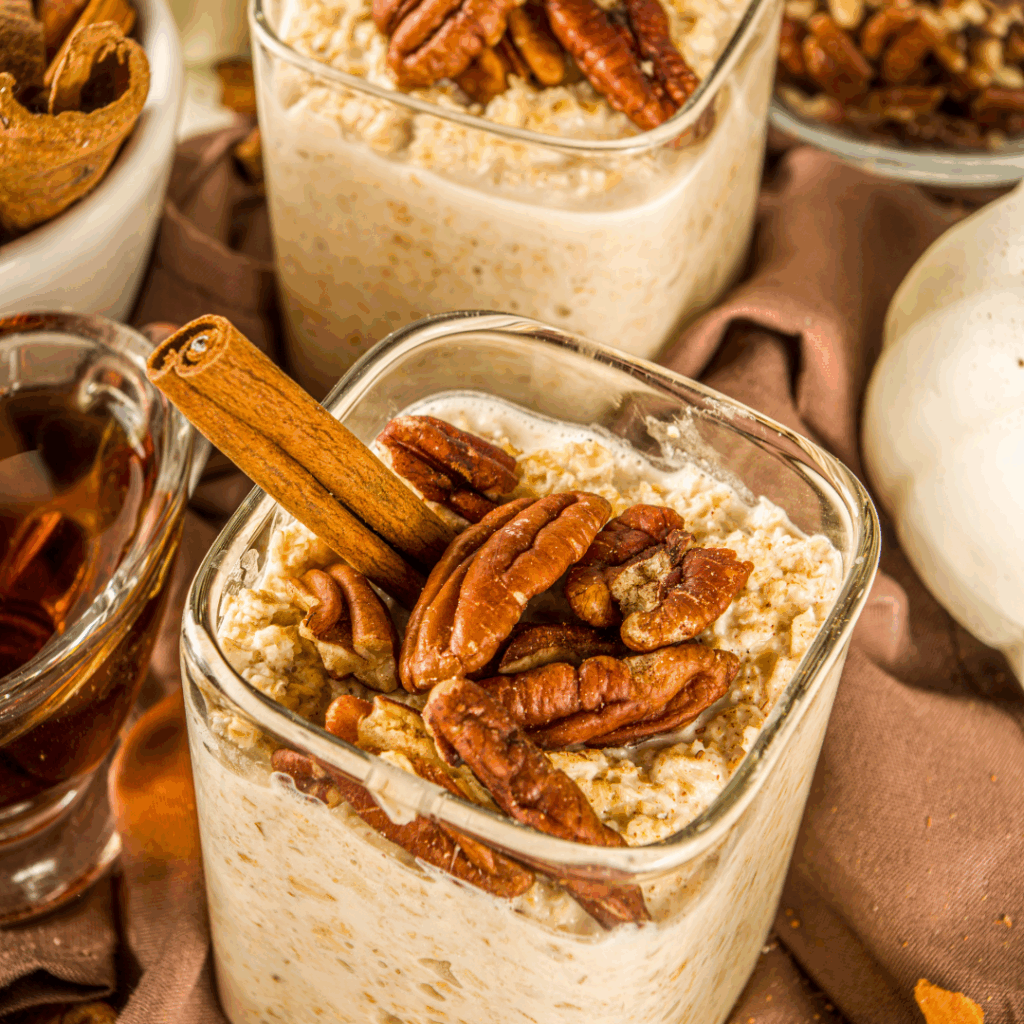You’ve probably noticed that the produce section at your grocery store has an exclusively organic selection. As you walk by it, you may see a beautiful spread of green veggies and bright red apples, and then you’ll quickly notice something else too — the price! FIVE dollars for a tomato?! Get outta here! 🤯 On average, organic foods are 47 percent more expensive than non-organic foods. Yet, many consumers shell out their hard-earned cash on organic fruits and veggies for various reasons – environmental sustainability, added nutrition, absence of pesticides, or better taste. But, are these reasons scientifically valid, or are they all just hype? Is the non-organic produce section “unhealthy” or not as good for you? Do you *really* get all of those environmental and health benefits from a five-dollar tomato vs. a ninety-nine-cent one? READ MORE HERE.
WHAT DOES “ORGANIC” MEAN?
The term “organic” refers to the process of how certain fruits and vegetables are grown. Organic produce is grown and farmed without the use of artificial chemicals or genetically modified organisms. Conventional produce, on the other hand, is the non-organic stuff.
WHY DO PEOPLE BUY ORGANIC?
Let’s break down all the common reasons why people buy organic, and let’s see if buying organic makes sense for you!
Reason # 1: Organic produce is better for the environment
Verdict: it’s hard to tell – more science is needed.
For quite some time, many experts have agreed that organic farming is better for the environment because its practices involve less water pollution, soil erosion, and energy. It has been said that eliminating the use of pesticides in farming also benefits nearby birds, animals, and people who live close to the farms. More recently though, evidence shows that the environmental impact of organic farming may be the same as conventional, so the jury is still out on this one. The evidence is stronger on the “better for the environment” side, but more research is needed to make some conclusions on this debatable topic.
Reason # 2: Organic produce is more nutritious.
Verdict: mostly true, but the difference is insignificant.
For years, people have said that organic food is more nutritious than the non-organic stuff, but you may not be that impressed when you look at the nutritional comparisons. When it comes to fruits and vegetables, organic has a little more nutrition (extra antioxidants), but we are talking like an extra two specks of black pepper worth, so nothing significant enough for you to pay six dollars for a sweet potato. Still, some people want the additional “two specks” worth of nutrition, and if they have the financial means – great! But by no means are you getting bad nutrition from the non-organic stuff. I can confidently tell you that conventional produce (non-organic) is highly nutritious. Whether it is grown organically or not, fruits and veggies have many of the good-for-you vitamins and minerals your body needs. So, the bottom line here: eat your fruits and veggies – organic or not!
Reason # 3: Organic produce is pesticide-free.
Verdict: false – not true at all!
Organic foods are not pesticide-free. Many people tell me that they buy organic fruits and vegetables to avoid pesticides, but these people are not necessarily avoiding pesticides – they are just having different kinds of them. Organic farmers have a strict list of pesticides that they can use – most are natural pesticides like copper and hydrogen peroxide, but some of the pesticides used are man-made. Now, many people feel better about the idea that the pesticides used in organic farming are primarily natural, but natural doesn’t always mean safer. In fact, many of the natural pesticides used have to be used in larger amounts because they are not as effective at keeping bugs and critters away. Regardless, the number of pesticides used in organic and non-organic farming is considered perfectly safe, so it doesn’t really matter what you choose when it comes to safety.
Reason # 4: Organic produce tastes better.
Verdict: likely false – no evidence of this.
Some people say that organic produce tastes fresher and better. A common reason for this may be that organic produce is often local, so the food doesn’t spend too much time in transport. This means that it gets from the farm to your table much faster, and that may contribute to the better flavor. Some people wonder if the soil used in organic farming makes the food taste better. Some experts argue that the better taste is simply a placebo – people expect it to taste better, so they make themselves think it tastes better! Some people say that organic produce tastes the same as the non-organic kind. This is strictly anecdotal and there is no scientific evidence to say that there are certain compounds in organic produce that make it taste better.
THE BOTTOM LINE – SHOULD YOU BUY ORGANIC?
Buying organic produce is a personal choice. You already know that organic produce isn’t way more nutritious or safer than the regular stuff, so a lot of it will come down to your personal preferences and budget. If you want the teeny, tiny extra bit of nutrition from the organic produce, and you can pay for it, then go right ahead! If you like the idea of supporting organic farmers, then buying organic may be a good fit for you. From an environmental standpoint, it may or may not be better for the environment – we’ll have to wait on more evidence to make some conclusions. If you have a large family or don’t have a lot of extra money to spend, please know that you can have a very nutritious diet without anything organic. The main problem is that, in general, too many people don’t eat enough fruits and vegetables! Organic or not, the more significant issue is the inadequate consumption of produce. So, the most important thing is not whether your broccoli is organic or not – it is whether you eat it or not!
WANT MORE?
I talked about the dirty dozen list and how many servings of non-organic strawberries you would need to eat every day in order to (potentially) harm your health in an easy-to-digest video inside the BodyFit Athletic Club. Join the club for additional information on this trendy topic and much more!











Leave a comment
I’m a bit shocked to find a quite negative article towards organic produce here. Maybe organic is not always the way to go, and spending 5 dollars on 1 tomato is definitely too much. However, I think it’s worth it to buy locally, transportation of all these produce around the globe cannot be good. Also buy in season, way better taste and gives you the variety in fruit and veg that you need.
Also, maybe organic is not what makes the produce better, but the care that went into it. An organic farmer probably finds it more important that the food he grows is actually good and tasty, its not just to make money. And, yes, I do find an organic mango sooo much tastier than a non-organic one.
Yes I’m upset this is posted on a website that is encouraging healthy behavior. Conventional large scale agribusiness uses tons of pesticides. Why isn’t the fact that many of these pesticides are linked to greater cancer rates not included here? In Europe many of the pesticides we use are banned. Our regulatory agencies are often staffed by people who make money or have made money in the same big agricultural companies they are supposed to regulate. Really quite upsetting you are posting this here and makes me less inclined to seek out your website and services. I like the idea of posting the “dirty dozen” and the “clean 15” as a way of helping people consider their budgets and helping us decide what is most important to buy organic but again very upset about the lack of facts included here.
Hey there! Thanks for the comment. I don’t intend to speak negatively about organic produce nor do I discourage the consumption of organic foods. The goal of the article is to provide the current evidence on the topic and to clarify common misconceptions about this type of farming.
I have nothing against organic produce and this specific article discusses organic produce, but not local fruits and veggies. Organic doesn’t always mean local or what’s in season. I am a big proponent of buying local and what’s in season for the best taste and most nutrition (and sometimes it can be more affordable!) and that can certainly be organic, but it may not be. I’m fact, many local and small farms use organic practices, but cannot afford the price to get organic certification. The goal is to educate and encourage folks to consume fruits and veggies and not be put off if they cannot afford the organic varieties.
Fun fact: I interned in an organic produce farm 2 years ago in Pennsylvania, so I worked side by side with organic farmers! I buy a lot of organic produce to support organic farmers, but as stated in the article, buying organic comes down to your personal preferences and finances.
Thank you for your willingness to “go there” and tell the truth about “organic” produce even if it might be unpopular!
I’d also like to point out that the word “organic” has nothing to do with whether or not the produce is grown locally, as this appears to be a common misconception as well.
Thanks for the straight truth. It is each individual’s right to buy and eat whatever they choose, but everyone should at least know the true facts, and then make their own decision!
We switched to eating mostly organic fruit and vegetables several years ago and disagree that it doesn’t taste better IT DOES taste better significantly. We have increased our intake of fresh produce by 75% .I also disagree about a tomato costing 5$ .I live in a large city where I have several options to organic produce only 10-20 % higher cost at the store in fact for us it is cheaper in the long run for 1 main reason we eat all that we buy It last 25-50% longer than non organic produce because the farmers aren’t using the chemical laden pesticides.
Thank you for this article, I found it refreshing, these are questions I’ve asked myself. There is a lot of misinformation out there, but the bottom-line is that it’s way more important to eat your fruits and vegetables.
I appreciate this perspective. The point about “locally grown” is a good one…produce with a shorter transport time will taste better, whether it is organic or not because it’s had time to ripen on the plant. Thank you for giving us this information.
This is so refreshing to hear. For many of us who want to eat healthier, but can’t really afford to buy all our fruits and vegetables organically for a variety of reasons, it’s nice to know that we aren’t doing it wrong.
Basically …it’s the “you do you” and what’s best for your family. That works great for us! Thanks for sharing.
Really thoughtful and informative article! I tend to focus more on buying local than prioritizing organic… it is often just as expensive 🤪
I knew I liked you and Amy. Thanks for sharing the truth about organic food. My family can’t afford organic food and it gives me peace of mind to know I’m not “poisoning” my family with conventional produce. Thank you!
I totally agree with Vivian’s finding, but that is my opinion just like she said that this is your decision to make. All she did was give you the science. Thank you Vivian 🙂 I totally agree that eating either type of veggies is better than not eating them at all!